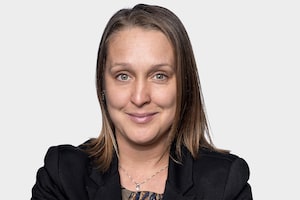Marco Lensi/Getty Images/iStockphoto
Ruby Urowitz was a 43-year-old stay-at-home mother of four when cancer abruptly claimed her husband Tommy.
His death was not only emotionally devastating, it had severe financial consequences. Their Burlington, Ont., house was paid off and there was an insurance payment, but his $175,000 salary was gone and the family had no savings to fall back on. As the sole breadwinner, her husband oversaw the family's finances and paid all the bills.
"After he died I was so sad and angry at the disease that I didn't make good choices," Ms. Urowitz said. Naive about money matters, she says she followed some bad financial advice. "If my husband and I had talked about it, I would have known more and not been so intimidated."
Within a short time, Ms. Urowitz was forced to go back to work. She eventually sold her house and moved into a townhouse. Now 69, she is still making mortgage payments and does not foresee a time when she can retire. "In retrospect, we should have had a contingency plan. But when a person becomes ill with cancer, you don't want to talk about these things."
Many Canadian couples, young and old, put off discussing financial matters and fail to establish a plan for what will happen when one of them is no longer there. In some households, one partner or spouse has exclusive responsibility for taking care of all matters financial - banking, investing, taxes and retirement planning - while the other is perhaps in charge of running the household. That setup works while both people are alive and healthy, but sets the groundwork for future trouble.
"People stick their heads in the sand. They know that one of them will die before the other, that one person will be left behind. But they choose not to worry about it, because that is easier," says Peterborough, Ont., lawyer Peter Lillico.
An estate and succession planning lawyer for 31 years, he meets couples on a weekly basis who do not share basic financial information and have no emergency backup plans.
Although all life partners need to prepare for the what-if scenario, the elderly are left particularly vulnerable for a variety of reasons, he says. "The older the couple is, the more interdependent they are on each other. Their health and stamina are reduced, and they have less of an ability to return to work."
|
The Invest for Life series:
|
Cherith Cayford, a certified financial planner with CMG Financial Education in Victoria, says that although the cost of living is rarely reduced when a partner dies, in most cases the household income drops.
"If they were both receiving federal Old Age Security, then one of those completely disappears but the remaining person's expenses remain the same. Sadly, these people often end up living in poverty."
Losses of income like this one are completely predictable and could be worked into a contingency plan. The situation is of course worse if the remaining partner does not even know what bank accounts, retirement savings, debts or investments the couple has. Furthermore, they might be reluctant to go see a financial adviser they have never met and admit their ignorance.
"In the worse case, they could end up dealing with an Earl Jones type, someone who sees they are vulnerable and persuades them to do something that is not necessarily in their best interest," Mr. Lillico says, referring to the Montreal financial adviser who swindled his clients out of millions.
Communication and a contingency plan are key to making sure this does not happen to you. Couples should list and share detailed financial information with one another, ensure each one has met the financial adviser, lawyer, and accountant, and establish an emergency plan that includes looking at how much the family's income will fall once one spouse dies and whether it is possible to maintain the same lifestyle on that income.
To read Peter Lillico's tips on how to prepare a financial contingency plan for when your spouse dies, click here.
Ms. Urowitz certainly wishes she and her husband had talked about money and come up with a financial road map before his death. "It's important to discuss these things. But if you wait until the onus is there, it's too late."
 Roma Luciw
Roma Luciw